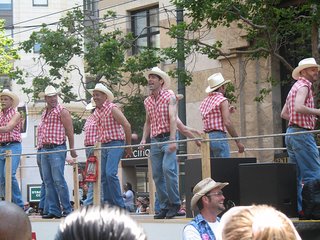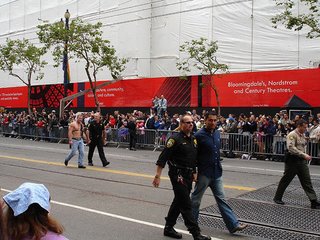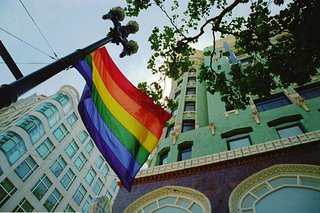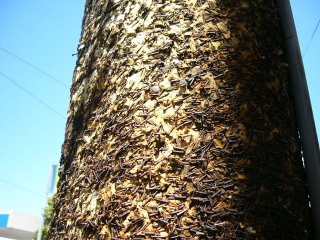[50] The Pillars of Earth - Ken Follett
 If life is really meant to be and fate is ineluctable, then the cathedral of Kingsbridge has amazingly brought together people whose lives would have never crossed paths. A starving family wandered around the countryside looking for work and food. A master builder whose wife died from exhaustion and excess blood loss after giving birth to a baby met a young prior who was aspired to straighten discipline at his monastery and eventually to build a new cathedral. A doomed heiress of earldom imposed upon the hospitality of the prior's monastery after the man with whom she broke the engagement raided the castle and killed her father. The prior's brother found an abandoned baby on his way to the town and decided to raise him for God.
If life is really meant to be and fate is ineluctable, then the cathedral of Kingsbridge has amazingly brought together people whose lives would have never crossed paths. A starving family wandered around the countryside looking for work and food. A master builder whose wife died from exhaustion and excess blood loss after giving birth to a baby met a young prior who was aspired to straighten discipline at his monastery and eventually to build a new cathedral. A doomed heiress of earldom imposed upon the hospitality of the prior's monastery after the man with whom she broke the engagement raided the castle and killed her father. The prior's brother found an abandoned baby on his way to the town and decided to raise him for God.The Pillars of Earth is an epic covering over four decades' time that tells the story of a priest who despite all the difficulty, challenge, and vile monarchs was aspired to build a new cathedral at Kingsbridge. An orphan raised by the monks, Philip had spent his entire life in monastery. It's clear that after his being the cellarer at a young age and then the prior of a small remote monastery for years, the hand of God was on him. The dilapidated look of Kingsbridge struck him--the broken stones of a collapsed tower lay where they had fallen--and more importantly, he was indignant for years at the disgraceful ways the priory was run, how it was allowed to surrender to slackness and ungodliness.
The building of a new cathedral proceeded sluggishly under the thriving power struggle between kings, earls, knights, barons, and bishops. The modest, peace-loving prior found himself inevitably involved in the dangerous meddling of royal politics. On top of a blaze that incurred further damage to the half-collapsed church, in a war that raged over the three decades, the vile bishop had done everything he could to destroy Philip and the priory. Colluding with William Hamleigh who was seethed with greed and lust, he contrived to humiliate Philip--to build a new church at his Shiring in lieu of the one in Kingsbridge, and to move the diocese in Shiring. In an evil attempt to rid of the town and its people altogether, Hamleigh attacked and burned down the marketplace. However troubled, heart-broken and demoralizing it might be to Philip, he managed to rebuild, to remain meek, to outmaneuver, and to triumph over without weapon and free of violence.
As the years went by Tom Builder had cultivated a relationship with Philip that had rooted in trust and respect--he had become the master builder of the cathedral at the height of his skills. He reflected how the prior with his faith and unflinching conviction had kept Kingsbridge together: he ruled the village, administered justice, settled quarrels, and decided where houses should be built, employed most of village residents, managed the priory, negotiated with monarchs, and fought predatory bureaus. He apropos demonstrated how weakness and scruples had defeated strengths and ruthlessness.
The doomed heiress, Aliena, had proven to be one of the most noblest and admirable characters in literature. Living the life of an incessant revenge’s victim, she stood her ground but not without qualms. William whom she rejected to marry, had ruined her father, raped her, taken her castle, burned her wool trade and exiled her brother, but every time the villain thought he had crushed her she came back again, rising from defeat to new heights of power, wealth, and strength. Her obstinacy of not succumbing to adversity intrigued everyone, although she still lived in the shame of her past.
The Pillars of Earth is a very poignant and despondent read at times but the nuanced historical details and etched characterization, and the impetus to do justice of all the heinous, ruthless, and insidious deeds to which Kingsbridge had been subjected over decades make it an incredible page turner. If there is ever a novel that proclaims hope and perseverance, that will be The Pillars of Earth. There is always a gleam of hope at any inferno situation--no matter how people were shaken to the core or how poor the morale was. The passion sparked the motivation and determination to build the most spellbound Gothic cathedral and all it took was one man's faith that was like mustard seed.






























